Hello fellow dog lovers, I’m Dr. Candy Akers, your friendly holistic veterinarian. Today, we’re going to talk about a topic that’s close to my heart and crucial for your beloved pet’s health – Husky Dental Health. We all adore our Huskies, with their striking eyes and playful nature, but their dental health often gets overlooked.
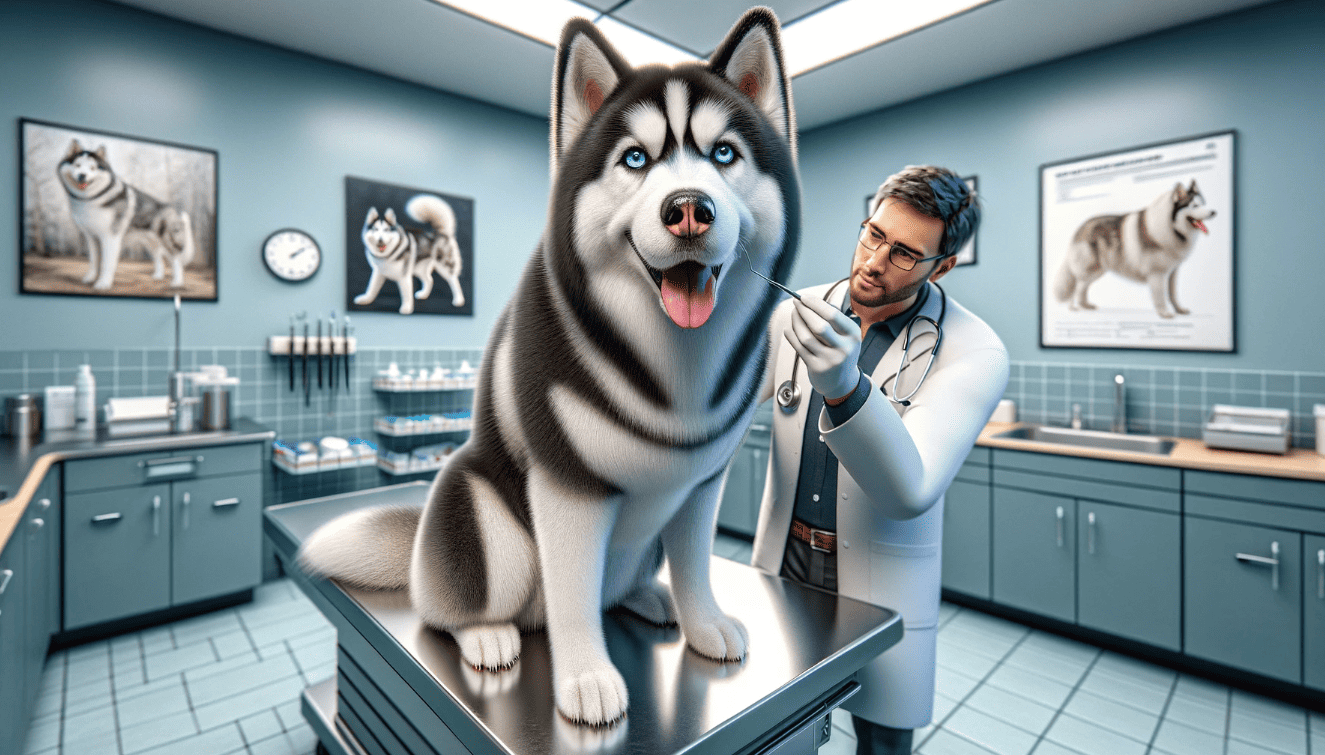
Did you know that dental health is a significant part of your Husky’s overall wellbeing? Yes, those pearly whites are not just for flashing a charming doggy smile or for chewing their favorite toys. Dental issues can lead to severe health problems if not addressed promptly.
As a holistic veterinarian, I believe in the power of prevention and natural care. So, let’s discuss how to keep your Husky’s teeth clean, how to spot signs of dental disease, and what to do if your Husky has dental problems. Remember, a healthy mouth equals a happy, healthy Husky!
Let’s get started on our journey towards better oral health for Huskies. This is not just about combatting bad breath, it’s about ensuring your Husky lives a long, joyful, and healthy life.
Identifying Signs of Dental Disease in Huskies
As a holistic veterinarian and a fellow dog parent, I understand the concern you feel about your beloved Husky’s dental health. Let’s delve into the signs of dental disease in Huskies, arming you with the knowledge to catch any potential issues early and keep your furry friend’s teeth healthy.
Bad Breath and Changes in Eating
The first sign of dental disease in Huskies, as with most breeds, is typically bad breath. While it’s common for dogs to have a certain ‘doggy breath’, a sudden change or intensification of smell could indicate a problem. This could be a sign of periodontal disease, which is an infection of the gums and tooth-supporting structures caused by plaque and tartar build-up.
Another sign is a change in eating habits. If your Husky is suddenly reluctant to eat, especially hard food, or is favoring one side of the mouth, it may be experiencing dental discomfort. Similarly, excessive drooling or pawing at the mouth can indicate a dental issue.
Visual Signs to Watch For
Visual cues are also vital in identifying dental disease. Regularly inspect your Husky’s mouth for signs of red, swollen, or bleeding gums. Yellow or brown deposits on the teeth, especially near the gum line, are signs of tartar build-up which can lead to gum disease if not addressed.
Loose or missing teeth can be a more advanced sign of dental disease in Huskies. This breed is known for its strong teeth, so any looseness or loss is cause for concern. Other signs to watch for include abnormal growths or lumps in the mouth and changes in the color of the gums or tongue.
Remember, Huskies are a tough breed and they often hide their discomfort well. Regular dental check-ups are crucial to catch potential issues early on. If you notice any of these signs, it’s important to seek veterinary advice immediately. With early detection and proper Husky Dental Health care, we can prevent many dental issues and keep your Husky’s smile bright and healthy.

Common Dental Health Issues In Huskies
As a veterinarian, I often encounter various Husky Dental Health issues that are unique to this breed. Huskies are known for their beautiful smiles, but behind that smile can hide some common dental problems.
Firstly, periodontal disease is quite common in Huskies. This is a gum infection that can lead to tooth loss if left untreated. Signs include bad breath, red or swollen gums, and difficulty eating.
Another common issue is tooth decay. Huskies love to chew, and sometimes, they can damage their teeth in the process. Broken or damaged teeth can lead to cavities, which can cause pain and infection.
- Retained baby teeth can also be a problem in Huskies. If a baby tooth doesn’t fall out when the adult tooth comes in, it can cause overcrowding and other dental problems.
- Huskies are also prone to oral tumors. While these are often benign, they can cause discomfort and should be checked by a vet.
Lastly, tooth root abscesses are another common Husky Dental Health issue. This is an infection in the root of a tooth that can cause swelling and pain.
Regular dental check-ups and cleanings can help prevent these common Husky Dental Health issues. As a responsible Husky parent, it’s important to pay attention to your dog’s oral health and seek veterinary care if you notice any changes.
Conventional Dental Health Treatments for Huskies
When it comes to Husky Dental Health, conventional dental treatments play a crucial role. In many cases, these treatments can help prevent serious dental health issues, ensuring your husky maintains a healthy and happy smile.
Anesthetic Dental Cleanings
The cornerstone of conventional dental health treatments is anesthetic dental cleanings. This procedure is typically performed by a veterinarian under general anesthesia. It involves removing plaque and tartar buildup from your Husky’s teeth, both above and below the gum line. This is a vital part of maintaining your pet’s oral health, as unchecked plaque and tartar can lead to gum disease and other serious dental problems.
However, while anesthetic dental cleanings are generally safe, they do come with some risks. Anesthesia always carries a degree of risk, especially for dogs with pre-existing health conditions.
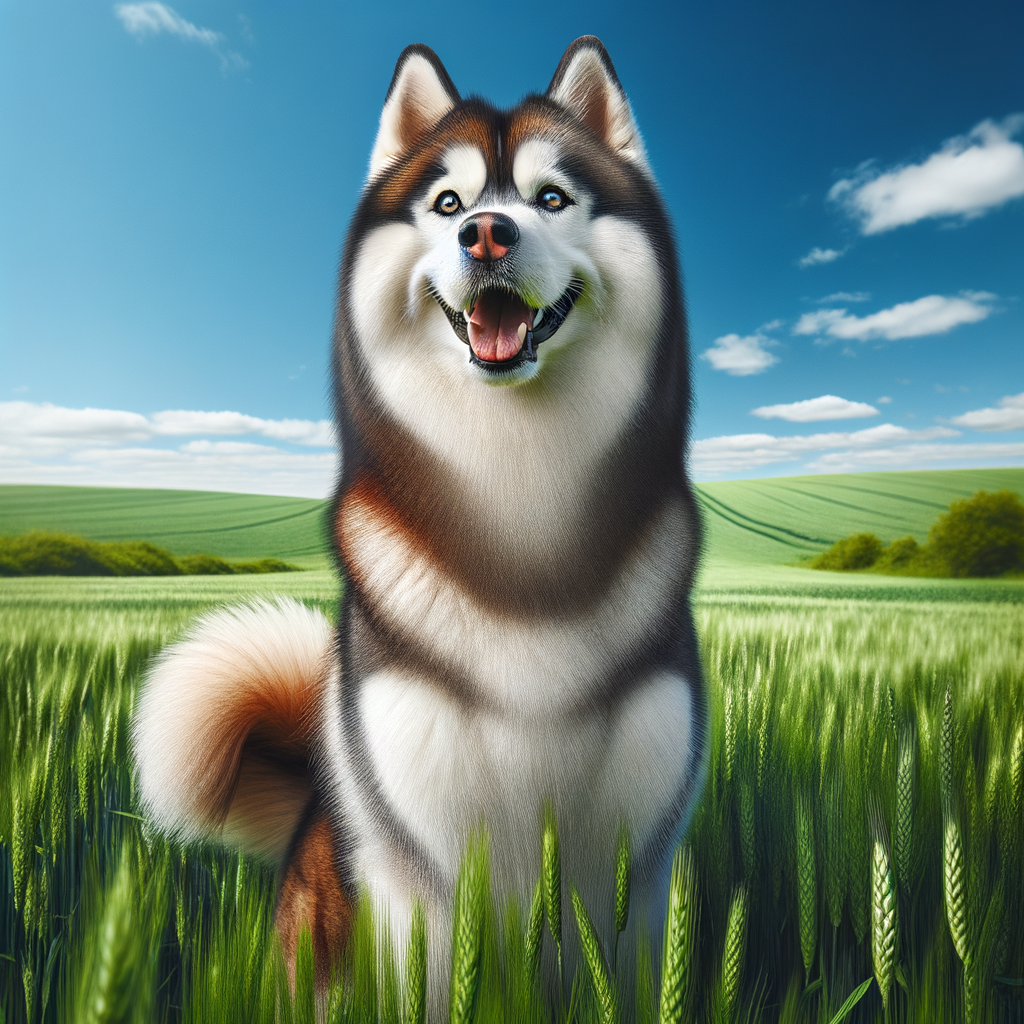
Potential Individual Health Obstacles
Certain individual health obstacles can make anesthetic dental cleanings more risky for your Husky. Dogs with heart problems, for instance, may be at a higher risk of complications from anesthesia. Similarly, Huskies with drug sensitivities could have adverse reactions to the anesthetic or other medications used during the procedure.
Furthermore, dogs with a history of seizures may experience an increased risk of a seizure occurring during the procedure. Extreme age can also raise the risks associated with anesthesia. Therefore, it’s essential to discuss these potential obstacles with your vet before proceeding with an anesthetic dental cleaning.
In spite of these potential risks, it’s important to remember that maintaining your Husky’s dental health is crucial. Regular dental cleanings, whether anesthetic or non-anesthetic, can help prevent the development of serious dental diseases. However, always keep in mind that each Husky is unique, and what works best for one may not work for another. Always consult with your vet to determine the best dental health approach for your furry friend.
Remember, when it comes to Husky Dental Health, prevention is always better than cure. Regular check-ups and cleanings can go a long way in ensuring your Husky’s pearly whites stay healthy and strong.
Dr. Candy’s Holistic Approach To Oral & Dental Health
As a dog parent, it’s important to understand that your Husky’s dental health goes beyond just brushing and regular cleanings. Diet and probiotics play a significant role in maintaining your Husky’s oral health. Let’s explore these aspects.
Diet- Low Carbs, Avoid Added Sugars, Enzymes In Fresh Food
A balanced diet is crucial for your Husky’s overall health, including their dental health. A diet low in carbohydrates can help prevent the build-up of plaque and tartar on your Husky’s teeth. Carbohydrates, especially simple ones, can stick to your Husky’s teeth, providing a breeding ground for harmful bacteria.
Similarly, avoiding added sugars in your Husky’s diet is critical. Sugars provide a food source for bacteria, encouraging their growth and leading to dental problems. Always check the ingredients of your Husky’s food to ensure there are no hidden sugars.
Lastly, incorporating fresh foods into your Husky’s diet can provide necessary enzymes for oral health. Fresh foods, particularly raw fruits and vegetables, can act as natural toothbrushes, helping to scrub away plaque and tartar. Foods like apples, carrots, and celery are great options.
Oral Health Specific Probiotics
Probiotics are beneficial bacteria that can improve your Husky’s dental health. These good bacteria can help balance the oral microbiome, preventing the overgrowth of harmful bacteria that cause dental diseases.
I recommend Probiora for Dogs, an oral health targeted probiotic. This specific probiotic is designed to promote a healthy balance of bacteria in your Husky’s mouth, helping to prevent plaque, tartar, and bad breath. It’s easy to use – simply sprinkle it on your Husky’s food once a day.
Remember, maintaining your Husky’s dental health is a holistic process that involves good dental hygiene practices, a balanced diet, and the right supplements. This approach will help ensure your Husky has a healthy, happy smile for years to come.
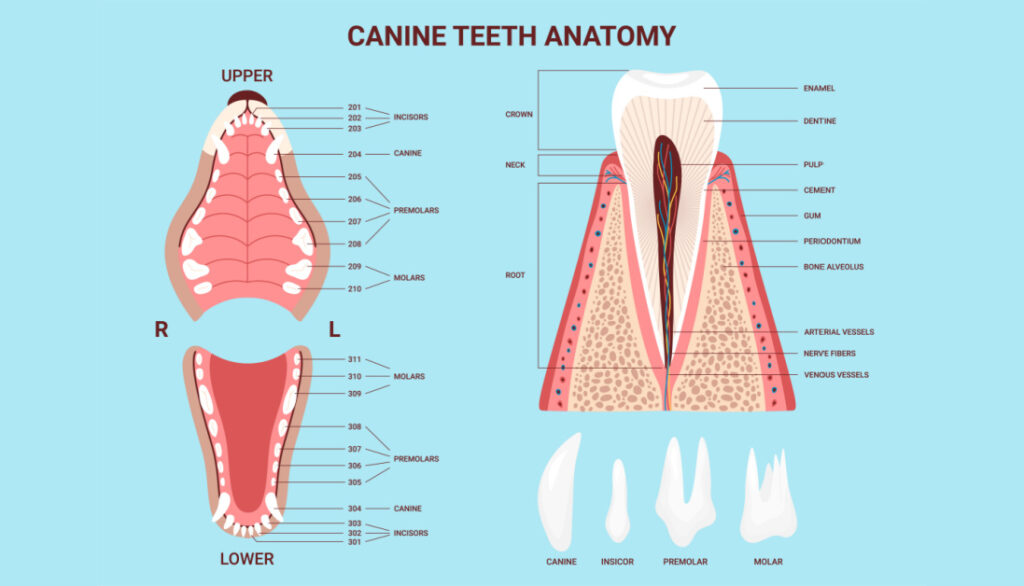
Recommended Dental Chews & Products For Huskies
The Failure of Commercially Promoted Dental Chews
As a loving husky parent, you might be tempted to reach for those heavily advertised dental chews that promise to help combat dental disease. However, it’s crucial to understand that not all dental chews are created equal. Many of these commercially promoted dental chews are often filled with artificial additives, preservatives, and excessive sugars that can harm your husky’s overall health. Furthermore, these chews are not as effective as they claim to be in removing plaque or tartar, leading to a false sense of security about your husky’s dental health.
Even products like drinking water additives, which claim to improve your dog’s oral health, can be harmful. While these products may help freshen your husky’s breath temporarily, they can disrupt the balance of beneficial bacteria in your dog’s gut, leading to digestive issues.
Dr. Candy’s Recommended Dental Chews & Products
When it comes to Husky Dental Health, it’s best to stick to natural, single-source protein dental chews. These products not only help clean your husky’s teeth but also provide them with valuable nutrients.
Tendons
Tendons are a fantastic natural chew for your Husky. They are tough and fibrous, which helps to scrape off plaque and tartar from your dog’s teeth. Plus, they are a good source of protein and collagen, promoting good joint health.
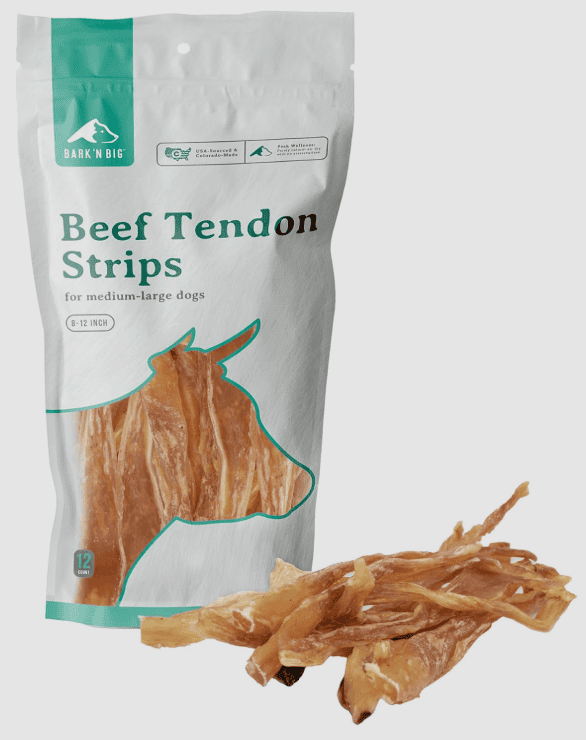
Raw Marrow Bones
Raw marrow bones are another excellent choice for maintaining your Husky’s dental health. They are a natural source of calcium and phosphorus, which are essential for healthy teeth and bones. Furthermore, the act of gnawing on bones can help to clean your dog’s teeth and gums.
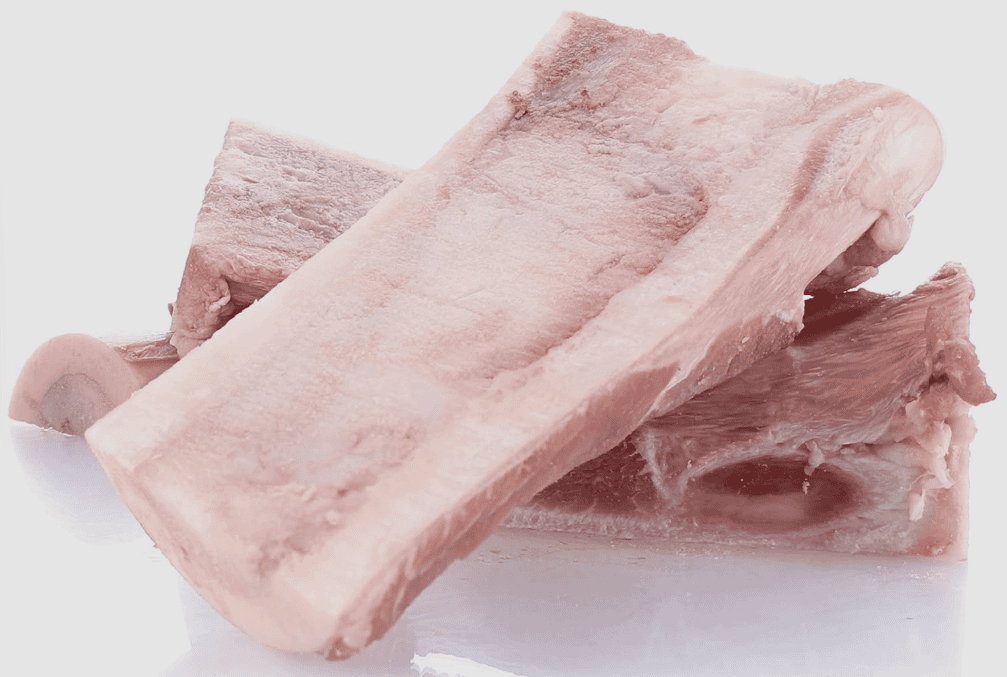
Bully Sticks
Bully sticks are made from 100% beef muscle, providing a natural and digestible chew for your Husky. They can effectively remove plaque and tartar and are a good source of protein. However, always supervise your dog while they’re chewing on a bully stick to prevent any choking hazard.
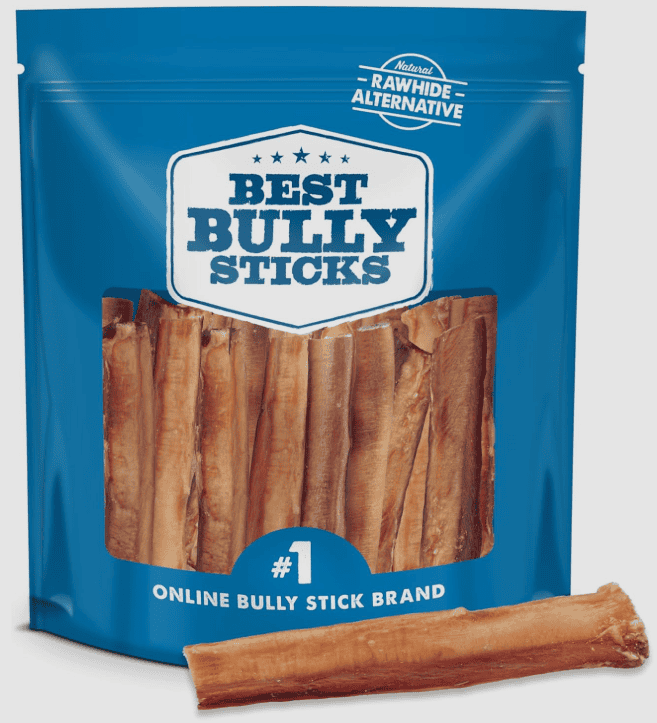
By choosing natural, single-source protein chews, you’re not only improving your husky’s dental health, but also their overall health and wellbeing. Remember, good dental health is an essential part of your husky’s overall health, so make sure to make it a priority.
Frequently Asked Questions
How often should I brush my husky’s teeth?
It is recommended to brush your husky’s teeth at least 2-3 times a week to maintain good dental hygiene and combat bad breath.
What kind of toothpaste should I use for my husky?
It is important to use toothpaste specifically formulated for dogs. Human toothpaste contains ingredients that can be harmful to dogs if swallowed.
Can dental chews help with bad breath in huskies?
Yes, dental chews can be beneficial in reducing bad breath. They help remove plaque and tartar buildup, promoting better oral health and fresher breath.
Are there any natural remedies to combat bad breath in huskies?
Yes, there are some natural remedies you can try. Adding a few drops of coconut oil to your husky’s food or giving them raw carrots as a snack can help freshen their breath.
When should I take my husky to the vet for bad breath?
If your husky’s bad breath persists despite regular dental care, it is recommended to consult a veterinarian. Persistent bad breath can be a sign of underlying dental or health issues that require professional attention.
